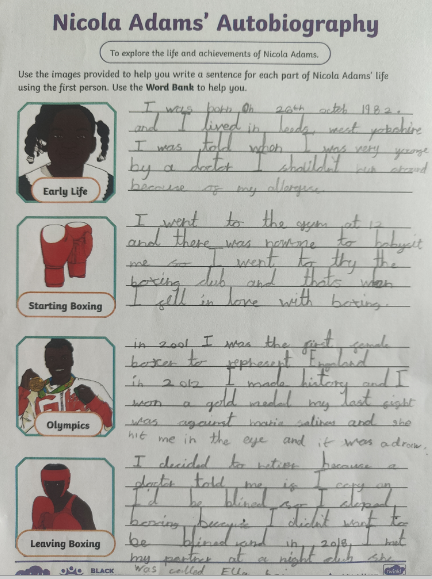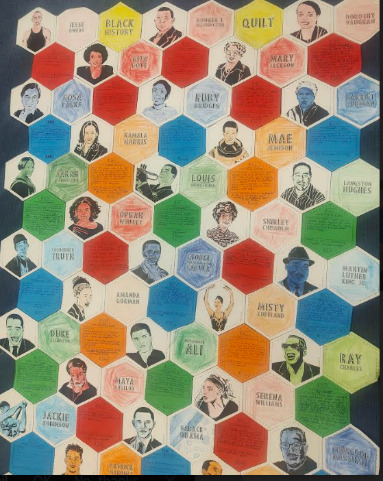History
History Curriculum
Intent:
At Orchard Lea Federation, we aim to instil a love of history in all children by providing a memorable and varied curriculum that inspires and encourages a sense of curiosity and interest about our world. Children will develop a well-rounded knowledge and understanding of a range of historical periods, including significant events in Britain’s past, and explore how historians investigate the past in different ways, and construct historical claims, arguments and accounts. Throughout their time at Orchard Lea, children will make connections between personal, local, regional, national and international history. Children will learn about the concept of chronology, which underpins children's developing sense of period, as well as key concepts such as the process of change and causation.
It is essential that Orchard Lea pupils understand why we teach history and why it is important. This is made very clear in our planning and discussions with the children about how history has changed the world and what we have learnt from it. Our intention is to improve every child’s cultural capital and their understanding of the world around them. Through historical learning journey’s, children will be invited to ask questions and make their own enquiries to direct their own understanding and make relevant connections. It is important to us that the children not only grasp a good understanding of the complexity of other people’s lives, the diversity of societies and relationships between different groups but also explore their own identity and challenges of their time. The curriculum is well thought through to enable children to know, remember, do and understand more. History begins in EYFS with the past and present ELG. Investigating history in EYFS lays the foundations for historical learning in Year 1. We are preparing them to develop into young historians and collaborate with others.
We want our children to leave Orchard Lea Federation as confident, aspiring historians, who are capable of supporting, evaluating and challenging their own and others’ views and respecting evidence from a range of sources, making critical use of it within their learning. They are encouraged to take care when considering different social factors and perspectives of the time. We understand the importance of being able to think, reflect, debate, discuss and evaluate the past by formulating and refining questions and lines of enquiry. We develop the children’s ability to communicate these ideas confidently to a range of audiences.
Aims
The national curriculum for history aims to ensure that all pupils:
- know and understand the history of these islands as a coherent, chronological narrative, from the earliest times to the present day: how people’s lives have shaped this nation and how Britain has influenced and been influenced by the wider world
- know and understand significant aspects of the history of the wider world: the nature of ancient civilisations; the expansion and dissolution of empires; characteristic features of past non-European societies; achievements and follies of mankind
- gain and deploy a historically grounded understanding of abstract terms such as ‘empire’, ‘civilisation’, ‘parliament’ and ‘peasantry’
- understand historical concepts such as continuity and change, cause and consequence, similarity, difference and significance, and use them to make connections, draw contrasts, analyse trends, frame historically-valid questions and create their own structured accounts, including written narratives and analyses
- understand the methods of historical enquiry, including how evidence is used rigorously to make historical claims, and discern how and why contrasting arguments and interpretations of the past have been constructed
- gain historical perspective by placing their growing knowledge into different contexts, understanding the connections between local, regional, national and international history; between cultural, economic, military, political, religious and social history; and between short- and long-term timescales.
Key Stage 1 Pupils:
-
changes within living memory. Where appropriate, these should be used to reveal aspects of change in national life
-
events beyond living memory that are significant nationally or globally [for example, the Great Fire of London, the first aeroplane flight or events commemorated through festivals or anniversaries]
-
the lives of significant individuals in the past who have contributed to national and international achievements. Some should be used to compare aspects of life in different periods [for example, Elizabeth I and Queen Victoria, Christopher Columbus and Neil Armstrong, William Caxton and Tim Berners-Lee, Pieter Bruegel the Elder and LS Lowry, Rosa Parks and Emily Davison, Mary Seacole and/or Florence Nightingale and Edith Cavell]
-
significant historical events, people and places in their own locality.
Key Stage 2 Pupils:
-
changes in Britain from the Stone Age to the Iron Age Examples (non-statutory) This could include: § late Neolithic hunter-gatherers and early farmers, for example, Skara Brae.
-
Bronze Age religion, technology and travel, for example, Stonehenge
-
Iron Age hill forts: tribal kingdoms, farming, art and culture
-
the Roman Empire and its impact on Britain Examples (non-statutory) This could include:
-
Julius Caesar’s attempted invasion in 55-54 BC
-
the Roman Empire by AD 42 and the power of its army § successful invasion by Claudius and conquest, including Hadrian’s Wall § British resistance, for example, Boudica
-
‘Romanisation’ of Britain: sites such as Caerwent and the impact of technology, culture and beliefs, including early Christianity § Britain’s settlement by Anglo-Saxons and Scots Examples (non-statutory) This could include:
-
Roman withdrawal from Britain in c. AD 410 and the fall of the western Roman Empire
-
Scots invasions from Ireland to north Britain (now Scotland)
-
Anglo-Saxon invasions, settlements and kingdoms: place names and village life § Anglo-Saxon art and culture § Christian conversion – Canterbury, Iona and Lindisfarne History 191
-
the Viking and Anglo-Saxon struggle for the Kingdom of England to the time of Edward the Confessor Examples (non-statutory) This could include:
-
Viking raids and invasion
-
resistance by Alfred the Great and Athelstan, first king of England § further Viking invasions and Danegeld
-
Anglo-Saxon laws and justice
-
Edward the Confessor and his death in 1066
-
a local history study Examples (non-statutory)
-
a depth study linked to one of the British areas of study listed above
-
a study over time tracing how several aspects of national history are reflected in the locality (this can go beyond 1066)
-
a study of an aspect of history or a site dating from a period beyond 1066 that is significant in the locality.
-
a study of an aspect or theme in British history that extends pupils’ chronological knowledge beyond 1066 Examples (non-statutory)
-
the changing power of monarchs using case studies such as John, Anne and Victoria
-
changes in an aspect of social history, such as crime and punishment from the Anglo-Saxons to the present or leisure and entertainment in the 20th Century
-
the legacy of Greek or Roman culture (art, architecture or literature) on later periods in British history, including the present day
-
a significant turning point in British history, for example, the first railways or the Battle of Britain
-
the achievements of the earliest civilizations – an overview of where and when the first civilizations appeared and a depth study of one of the following: Ancient Sumer; The Indus Valley; Ancient Egypt; The Shang Dynasty of Ancient China
-
Ancient Greece – a study of Greek life and achievements and their influence on the western world History 192
-
a non-European society that provides contrasts with British history – one study chosen from: early Islamic civilization, including a study of Baghdad c. AD 900; Mayan civilization c. AD 900; Benin (West Africa) c. AD 900-1300.
Implementation
History at Orchard Lea Federation is taught using a blocked curriculum approach to ensure coverage and progression in all historical skills. The History curriculum is set out in chronological order to allow children to refer to previous events in time.
Each history unit at our school follows a six-step enquiry and a discussion based approach to learning which begins with a hook to motivate pupils and scope the enquiry. We use a problem or key question for the children to explore across the topic and make predictions.
To develop their thinking, children collect information about specific historical periods in interesting and varied ways through collaborative work such as investigating historical vocabulary, freeze frame reconstructions and research projects. Workshops led by historians, visits to historical locations and historical artefacts are used to engage children in the topic. Children are able to apply their P4C skills through exposure to a range of historical stimuli and sharing of first thoughts.
Children make sense of the ideas and process the information by sorting and grouping sources of information. Children are taught how to draw their own conclusions and make their own meaning. In order to achieve this, we support children in linking ideas, prioritising ideas and recognising what is significant so that they are able to form an opinion. We share our perspectives and question our thinking at this point in the enquiry. Children also demonstrate their understanding through a range of activities such as role play, challenges and unpicking scenarios.
Their understanding is developed and refined by adding new evidence, perspectives or sources to the enquiry which challenges their thinking. Pupils are then encouraged to create a final product to demonstrate their understanding and thinking throughout the topic. The practical, varied and cross curricular activities are designed to be accessible to all learners, giving them the opportunity to be creative in the way that they share their thinking, for example creating board games to represent significant events, pop-up museums and designing stamps to represent important figures or legacies of historical period.
The wider curriculum is woven into the blocked History units so that children are able to make connections in their learning and it engages them fully. Children are provided with opportunities to discuss high quality texts, videos and images with a close link to the English curriculum.
The History curriculum takes the existing experiences of our learners into account, ensuring that learning is meaningful and relevant for all, including our disadvantaged and SEN pupils.
History - progression of knowledge and skills
History at Orchard Lea
The theme of this year's UK Black History Month was 'Celebrating Our Sisters' and learning about Black and Mixed Heritage British women who have shaped history. To celebrate this, Year 3 explored the life of Rosa Parks, learning who she was and what difference she made to the world. They wrote poems describing her personality and her beliefs.


In year 4, the children created a fact file about Sade Adu. This included information about her early life, achievements, musical influence and fun facts!


Year 5 wrote autobiographies based on Nicola Adams’ life and achievements. They explored her personal life including her experiences as a child, how she started boxing, her achievements during the Olympics and her life after boxing, including strictly come dancing!


Year 6 created a large “quilt” collaboration poster featuring influential African Americans. Individually, they worked on three hexagons. One hexagon is a portrait of an influential figure, the other is their name and the third hexagon is a biography describing their achievements. The children were amazed to see how their pieces all connected (tessellate) to make this “quilt” design!






